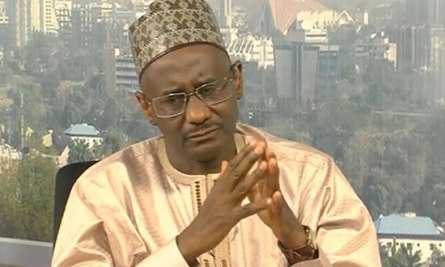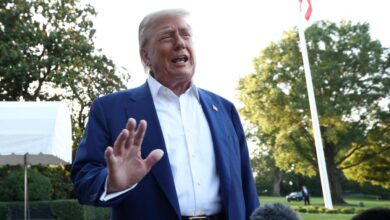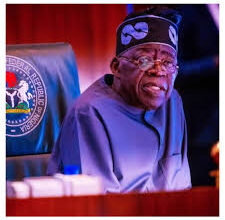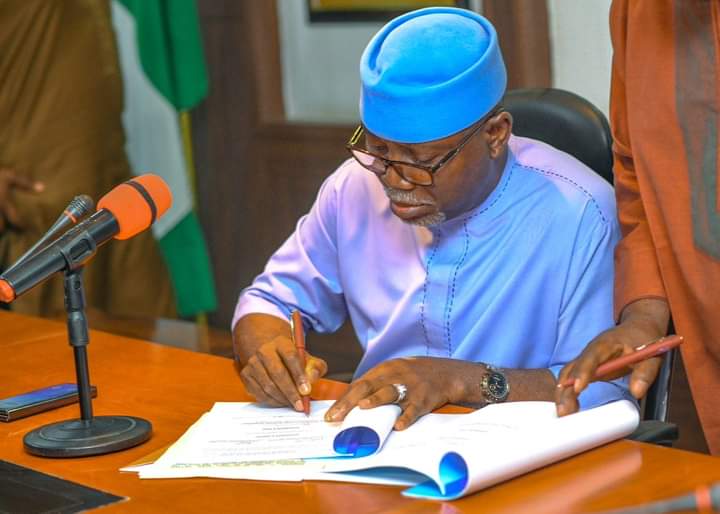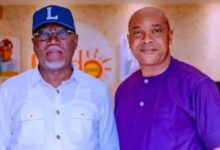No crisis between Muslims, Christians in Nigeria, Sultan declares at Abuja interfaith parley

*Says ignorance cause of religious tension in country
“At the age of eight, my parents sent me to St Ann’s Catholic Church School Kaduna. No one attempted to convert me to Christianity,” Sanusi said while calling for tolerance among Nigerians.
President-General of the Nigerian Supreme Council for Islamic Affairs (NSCIA) and Sultan of Sokoto, Alhaji Muhammad Sa’ad Abubakar, has said there is no crisis between Muslims and Christians in Nigeria.

He however noted the negative ignorance plays as he blamed it for being the cause of religious tension in the country.
Speaking at the Interfaith Dialogue Forum For Peace (IDFP) annual conference held in Abuja on Wednesday, the Sultan, who is also the President-General of Jama’atu Nasiril Islami (JNI), said those that kill do not kill as religious people but criminals and said they must be treated as criminals.
The Sultan, who was represented at the event by Sariki and Emir of Kano Alhaji Muhammadu Sanusi II, the multitask monarch said he does not know where people got the notion that Christians and Muslims are fighting.
“The poor Muslim Hausa farmer and the poor Christian Hausa farmer do not understand that their problems are the same,” the Sultan’s representative said.
He said that the rich Muslim and the rich Christians continue to confuse the poor who continue to fight themselves while the rich, irrespective of their religion, are living together, attending weddings and parties together.
“Communication is an issue. How do leaders handle communication? Sanusi said of the current tension.
“Whoever that takes life whether Christian or Muslim is a criminal and should be treated as such. Everything I heard today is hegemonic,” Sanusi said adding that the traditional and religious leaders that are supposed to hold political leaders to account for the people are being mussle into silence.
“If you are an emir and you talk too much, you get removed. If you are an Imam or a Bishop, you need money for charity, but be ready to do business with the devil so that you can do charity,” the Emir of Kano said while speaking on the fading norms in the country.
“The idea that there is a problem between Christians and Muslims is strange. At the age of eight, my parents sent me to St Ann’s Catholic Church School Kaduna. No one attempted to convert me to Christianity,” Sanusi said while calling for tolerance amongst Nigerians.
Meanwhile, other speakers at the programme called for the establishment of reconciliation ministry to help deepen understanding between Christians and Muslims.
The Catholic Bishop of Abuja and Apostolic administrator, Archdiocese of Jos, Most Rev Ignatius Kaigama, who spoke at the programme, called for the establishment of a ministry at the federal level for dialogue and reconciliation.
“To Strengthen the culture of dialogue, leaders of religion should be mindful of their utterences; especially dabbling into political predictions and instigating religious bigotry.
“To foster inter-religious harmony, we should create dialogue centre in communities, districts, chiefdoms, local governments, cities (as we did in Jos), states and if possible, a ministry at the federal level for dialogue and reconciliation,” Kaigama said.
The Bishop said they can climb the highest hight and make a powerful impact in the world, if they avoid narrow religious sentiments and religious idiosyncrasies that refuse to help them catch up with the fast-growing modern world.
“We urgently need to sustain the culture of genuine interreligious dialogue, from which will flow Justice, peace and reconciliation like a river,” Kaigama added.
On their parts, the Catholic Bishop of Sokoto, Most Rev Mathew Hassan Kukah and Bishop emeritus, John Cardinal Onaiyekan, both agreed with the submission of Kaigama for a reconciliation ministry.
According to Bishop Kukah, the problems in Nigeria are problems the leaders can address but wonder why it’s persisting.
He said the political actors have not shown the willingness to address the challenges adding that religious leaders can sit together and pray but if the political leaders did not take drastic action, nothing change.
Kukah, who expressed worry over the rising insecurity, added that there is no country where its people can be gathered and slaughtered and nothing happens.
“Politicians are now saying the religious leaders are the problem of the country. We must move from talking, and accept our limitations. We must not be complicit. There is no country that I know that human life is wasted like our country. Let us feel sorry for ourselves. We as religious leaders must stay aside and allow the parent whose children are being killed or kidnapped to talk? We must find a way of ending the carnage,” Kukah added.
Bishop emeritus, John Cardinal Onaiyekan, said religious leaders must ensure their resolutions to reach people in political offices for solution.
Onaiyekan, who said faith leaders will not stop speaking against bad governance, added that the government should voluntarily resign if it does not do well, or the people should push them aside, which he said the politicians will not allow to happen.
He said whether government setup a ministry of reconsolidation or not, both Christians and Muslims should create an avenue that will help them in solving their problems.
He said the reason tention is being hightened was because they have learned to speak to themselves without facing the people causing the problems.
On his part, the Christian Association of Nigeria (CAN) President, Rev Samson Ayokunle, who refused to make a speech during the programme, added that he was not in a good mood to speak because of the killing of a CAN chairman in Adamawa State.
“From December till now, we have continued to lose church leaders without any array of hope that it will stop.
“Dialogue with the Boko Haram that abducted him could not yield fruit. I am not in a mood to do a speech,” the CAN chairman said before moving to his seat in an emotional manner.
The Co-chairmen of the IDFP, Bishop Sunday Onuaha and Alhaji Ishaq Kunle Sanni, said the aim of the programme was to ensure a continuous dialogue between Christians and Muslims for peace in Nigeria.


